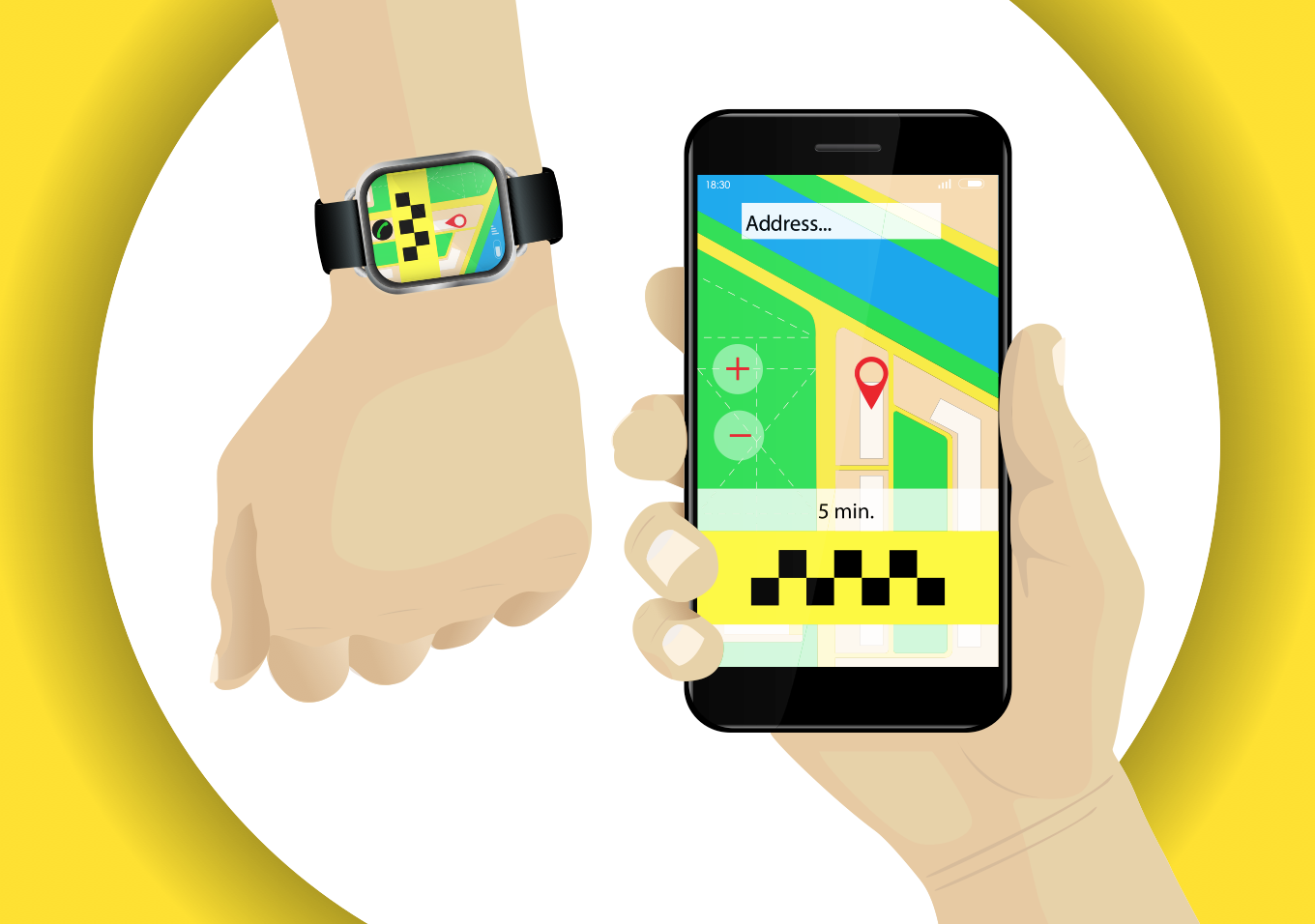In my frequent travels, I find myself in need of transportation, either from the airport, or from a hotel. I started wondering why I’ll go on my phone and order an Uber or Lyft car, instead of choosing to get a cab, when there are often cabs right at the airport or hotel? Often, I could just walk outside find a cab. But, maybe I’ll find a line waiting for cabs. Or, maybe a hotel attendant will have to call me a cab. For me, it’s the convenience, and certainty, of knowing that I have a ride, and when it will arrive. It’s also the convenience of having the charge go right to my credit or debit card, without having to make that physical transaction.
It’s also a history of problems I’ve had with cabs in the past. Things such as dirty cars, long waits, and drivers not accepting credit cards, or, as happened to a friend of mine, a driver telling her he didn’t have change of for her $20, in payment of her $6.50 ride (he ended up giving her $15 change, shorting himself in the process).
Is Uber perfect? Far from it. I’m not referring to things in the news lately about their corporate or legal issues. Many of us who have used Uber or Lyft, and have had our share of less than courteous drivers, cramped cars, and as happened to us yesterday, a driver whose cologne smelled very similar to alcohol (true story, and Uber refunded my fare for that one).

How did they do it?
So, what have they done to make Uber and Lyft my preference for ground transportation? They disrupted an established player (taxis, limos and car services) by making it easier to do business with them, and by providing information and transparency. Being able to watch the car icon moving along the map towards me doesn’t actually get the car there any sooner, but it somehow makes me feel better because I can see the process. In one click I can call or message the driver. Whether I ever use that feature isn’t important. The fact that I can is the bigger benefit. Years ago, when toll-free phone numbers were expensive, a large consumer products company put one on their packaging, with wording that encouraged their customers to call, toll-free with any questions. They didn’t get that many calls, but the perception of the company in the eyes of consumers, went up noticeably.
Can you be the disrupter?
Have you thought about how you can disrupt the status quo in your industry category? I remember seeing a videographer’s website that had a queue of the weddings that were being edited. It showed each couple exactly where they were in the list, and they could watch their name move up the list. He told me that he used to get numerous emails and calls from couples asking when their video would be ready. Since implementing the online queue, those calls and emails had almost completely gone away. It’s benefitted both the customers and the video business.
I can’t do that! (or can you?)
I’ve met many floral designers who tell me they can’t make a proposal on the spot, they need to research and get back to the customer. Not being able to give a price in the appointment, in my opinion, is costing them sales. Customers who are interested are being told to go home and wait for a proposal. Then, you have to get them back in, or chase them down after you’ve emailed the proposal. I’ve also met floral designers who have invested in technology to be able to create a proposal right now. Others have told me that they’ve been in their business long enough that they can make an estimate, on the spot. While they might occasionally be off, sometimes it’s in their favor, sometimes in the customer’s favor. It averages out over time, but makes them more sales because of the immediacy.
----
"What can you do to make it easier and more convenient to do business with you? How can you reduce the friction at every step in the process?"
----
What was once cutting edge becomes the norm
Toll free numbers were only for big businesses, willing to invest in them. Then the price came down and we all had them. Credit card processing used to involve expensive technology. Now, anyone with a smart phone can process a credit card, anywhere. Live chat was only for businesses with large staffs. Now, you can live chat on your smart phone from wherever you are. Someone who’s out of the office as much as I am used to rely on voice mail. Now, when you call my office phone, my cell phone rings as well. I’m about to start using a service that will allow my customers to text my main office land line. I’ll be able to see, and respond, to those texts on my phone or desktop.
Easier to sell is easier to buy
What can you do to make it easier and more convenient to do business with you? How can you reduce the friction at every step in the process? Having a better website experience, especially the mobile experience, will get you more inquiries. Giving them more choices on how to connect with you will get you more inquiries. Responding better, and faster, will convert more of those inquiries to appointments. Giving them fewer, but better options, will make it easier to sell and easier to buy. You can have dozens of options, just don’t show them all to the customer. You don’t want to hear this often: “You’ve given us so much to think about, we need to go home and process everything. We’ll get back to you.”
How many choices is too many?
In my consulting with wedding and event businesses, I often help businesses, like yours, scale back your offerings. While it may seem like you’re being a better resource by having a multitude of choices, it can often work against you. I see lists of products and services that look like my attic. Stuff goes in, but nothing ever comes out. I once did sales training for a venue that had 12 different chicken dishes on their menu. I asked them why they had so many choices. They said that, over the years, as their customers requested new ones, or their chefs invented new ones, they added them to the list. But, none ever came off the list. I asked how many of the 12 options actually get chosen, and it was two or three. The others were just clouding the decision-making process. And, showing all of those options to the customer, before they’ve reserved their date, was delaying closing the sale. I suggested they remove the nine or 10 that don’t get chosen. Then, make all of the others the same price, and sell them “chicken,” and have them choose which one after they’ve reserved their date.
I’ve suggested to many wedding businesses, especially smaller ones who only do one wedding on a day, to only offer one package on their most popular dates. If you get multiple inquiries for those dates, but can only sell one, why offer your lower package. That ends up costing you profit. One of my venue clients only offers the “Chef’s Tasting Menu”—in which the client knows how many appetizer and entrée choices, but the chef decides on the actual menu. DJs or photographers may only offer an All-Inclusive package for Saturday nights in high-season. Many wedding venues have “revenue minimums” for certain dates, so why not the rest of you?
Don’t just look at our industry
Pay attention when you’re the consumer, and see how what other businesses are doing to make your customer journey easier, can be adapted to your business. Starbucks gets us to pay way more for coffee than McDonalds, yet people line up, every day. I’ve used Uber in at least seven countries, all of which have taxis. What are your competitors doing to make it easier to do business with them? Can you disrupt the way business is done… before someone else does it to you?



